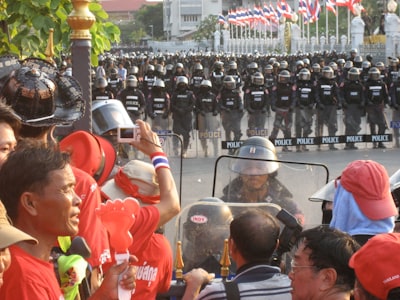Summary
In a significant escalation of already fraught Thai-Cambodian relations, Thai authorities recently conducted raids on properties in Thailand linked to Kok An – a powerful, four-term Cambodian senator and business tycoon with close ties to Senate President Hun Sen. A warrant for Kok An’s arrest was issued on allegations related to his leadership of major transnational gambling and cybercrime operations centered in Poipet, a notorious border town. The raids included the search of a residence belonging to Kok An’s daughter in Bangkok.
Analysis
This event highlights longstanding issues along the Thai-Cambodian border, particularly the entanglement of organized crime, corruption, and powerful political connections. The charges against Kok An, dubbed the “Godfather of Poipet,” are emblematic of the impunity enjoyed by politically protected figures in the region. The decision by Thai authorities to publicly pursue Kok An — even targeting his family's assets within Thailand — is notable for its boldness and could stem from rising domestic and diplomatic frustrations.
The incident also points to the complexity of regional law enforcement. Kok An’s political stature and ties to Cambodia’s elite likely shielded him for years. The raids and arrest warrant suggest a shift — whether driven by new political will in Thailand, international pressure, or mounting public demands for accountability. There is also a risk that such high-profile actions are leveraged for political theater or as leverage in broader negotiations, given the proximity to border tensions and sensitive bilateral issues.
Discussion
Why does this matter? Beyond the immediate criminal allegations, this story is about statecraft, sovereignty, and the delicate dance between justice and diplomacy in Southeast Asia. It raises central questions: Can law enforcement cross national and political boundaries when organized crime is so deeply interwoven with state structures? What will be the consequences for Thai-Cambodian relations, already brittle over issues ranging from labor to border disputes?
Thailand’s move may embolden similar actions against entrenched power networks, or it could provoke Cambodian backlash and further destabilize an already tense border region. There’s also the problem of narrative: Is this true accountability, or a political show of force? The framing by Thai authorities paints Kok An as a symbol of border criminality, but local realities are likely more nuanced — with ordinary people caught in the middle of elite rivalries, corruption, and systemic poverty.
Moreover, the invocation of 'cybercrime' and gambling reflects changing patterns of transnational crime, increasingly digital and interconnected. Regional stability demands stronger, more transparent cooperation, but historic mistrust complicates this goal.
Conclusion
The Thai raids on Kok An-linked properties are both dramatic and revealing. They underscore not only the persistence of high-level corruption and cross-border crime, but also the intricate interplay of politics, legitimacy, and law enforcement in Southeast Asia. Whether this moment represents a turning point or simply another episode in a long saga remains to be seen, but for now, it signals that powerful regional actors are willing to take risks – and escalate tensions – in the pursuit of their interests.

Comments
No comments yet. Be the first to comment!